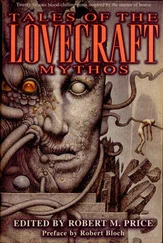Robert Pirsig - Lila. An Inquiry Into Morals
Здесь есть возможность читать онлайн «Robert Pirsig - Lila. An Inquiry Into Morals» весь текст электронной книги совершенно бесплатно (целиком полную версию без сокращений). В некоторых случаях можно слушать аудио, скачать через торрент в формате fb2 и присутствует краткое содержание. Жанр: Современная проза, на английском языке. Описание произведения, (предисловие) а так же отзывы посетителей доступны на портале библиотеки ЛибКат.
- Название:Lila. An Inquiry Into Morals
- Автор:
- Жанр:
- Год:неизвестен
- ISBN:нет данных
- Рейтинг книги:3 / 5. Голосов: 1
-
Избранное:Добавить в избранное
- Отзывы:
-
Ваша оценка:
- 60
- 1
- 2
- 3
- 4
- 5
Lila. An Inquiry Into Morals: краткое содержание, описание и аннотация
Предлагаем к чтению аннотацию, описание, краткое содержание или предисловие (зависит от того, что написал сам автор книги «Lila. An Inquiry Into Morals»). Если вы не нашли необходимую информацию о книге — напишите в комментариях, мы постараемся отыскать её.
Lila. An Inquiry Into Morals — читать онлайн бесплатно полную книгу (весь текст) целиком
Ниже представлен текст книги, разбитый по страницам. Система сохранения места последней прочитанной страницы, позволяет с удобством читать онлайн бесплатно книгу «Lila. An Inquiry Into Morals», без необходимости каждый раз заново искать на чём Вы остановились. Поставьте закладку, и сможете в любой момент перейти на страницу, на которой закончили чтение.
Интервал:
Закладка:
He put his trousers and sweater on, got a flashlight and a voltmeter from the tool box and opened the hatch to fix the light.
Outside, the rain had stopped but the sky was still overcast and reflecting the lights of the city. The rain would continue later, maybe. He’d find out in the morning.
On the dock he saw his electric cord was plugged in. He went over to its post, unplugged it and substituted voltmeter leads. No electricity there.
It wasn’t so good, he supposed, to stand barefoot on a wet dock checking 120-volt circuits. He opened a cover on one side of the post and found it, a switch that, sure enough, was OFF . They always do that to you. When he turned it on, the voltmeter showed 114 volts.
Back in the boat the lamp worked too. He got some alcohol and restored the fire in the stove.
He guessed he didn’t want to read the mail yet. That took special concentration. After hundreds of fan letters saying almost identical things it got harder and harder to read them with a fresh mind. More of the celebrity problem, and he didn’t want to get into that any more today.
There were those books he’d bought. He could read them. One of the disadvantages of this boat life is you don’t get to use public libraries. But he had found a bookstore with an old two-volume biography of William James that should hold him for a while. Nothing like some good old philosophology to put someone to sleep. He took the top volume out of the canvas bag, climbed into the sleeping bag and looked at the book’s cover for a while.
26
He liked that word philosophology. It was just right. It had a nice dull, cumbersome, superfluous appearance that exactly fitted its subject matter, and he’d been using it for some time now. Philosophology is to philosophy as musicology is to music, or as art history and art appreciation are to art, or as literary criticism is to creative writing. It’s a derivative, secondary field, a sometimes parasitic growth that likes to think it controls its host by analyzing and intellectualizing its host’s behavior.
Literature people are sometimes puzzled by the hatred many creative writers have for them. Art historians can’t understand the venom either. He supposed the same was true with musicologists but he didn’t know enough about them. But philosophologists don’t have this problem at all because the philosophers who would normally condemn them are a null-class. They don’t exist. Philosophologists, calling themselves philosophers, are just about all there are.
You can imagine the ridiculousness of an art historian taking his students to museums, having them write a thesis on some historical or technical aspect of what they see there, and after a few years of this giving them degrees that say they are accomplished artists. They’ve never held a brush or a mallet and chisel in their hands. All they know is art history.
Yet, ridiculous as it sounds, this is exactly what happens in the philosophology that calls itself philosophy. Students aren’t expected to philosophize. Their instructors would hardly know what to say if they did. They’d probably compare the student’s writing to Mill or Kant or somebody like that, find the student’s work grossly inferior, and tell him to abandon it. As a student Phædrus had been warned that he would come a cropper if he got too attached to any philosophical ideas of his own.
Literature, musicology, art history and philosophology thrive in academic institutions because they are easy to teach. You just Xerox something some philosopher has said and make the students discuss it, make them memorize it, and then flunk them at the end of the quarter if they forget it. Actual painting, music composition and creative writing are almost impossible to teach and so they barely get in the academic door. True philosophy doesn’t get in at all. Philosophologists often have an interest in creating philosophy but, as philosophologists, they subordinate it, much as a literary scholar might subordinate his own interest in creative writing. Unless they are exceptional they don’t consider the creation of philosophy their real line of work.
As an author, Phædrus had been putting off the philosophology, partly because he didn’t like it, and partly to avoid putting a philosophological cart before the philosophical horse. Philosophologists not only start by putting the cart first; they usually forget the horse entirely. They say first you should read what all the great philosophers of history have said and then you should decide what you want to say. The catch here is that by the time you’ve read what all the great philosophers of history have said you’ll be at least two hundred years old. A second catch is that these great philosophers are very persuasive people and if you read them innocently you may be carried away by what they say and never see what they missed.
Phædrus, in contrast, sometimes forgot the cart but was fascinated by the horse. He thought the best way to examine the contents of various philosophological carts is first to figure out what you believe and then to see what great philosophers agree with you. There will always be a few somewhere. These will be much more interesting to read since you can cheer what they say and boo their enemies, and when you see how their enemies attack them you can kibitz a little and take a real interest in whether they were right or wrong.
With this technique you can approach someone like William James in a much different way than an ordinary philosophologist would. Since you’ve already done your creative thinking before you read James, you don’t just go along with him. You get all kinds of fresh new ideas by contrasting what he’s saying with what you already believe. You’re not limited by any dead-ends of his thought and can often see ways of going around him. This was occurring in what Phædrus had read so far. He was getting a definite impression that James' philosophy was incomplete and that the Metaphysics of Quality might actually improve on it. A philosophologist would normally be indignant at the impertinence of someone thinking he could improve on the great Harvard philosopher, but James himself, to judge from what Phædrus had read so far, would have been very enthusiastic about the effort. He was, after all, a philosopher.
Anyway, the reason Phædrus bought these books on James was that it was necessary to bone up a little in order to protect his Metaphysics of Quality against attack. So far he had pretty much ignored the philosophologists and they had pretty much returned the compliment. But with this next book he was unlikely to be so lucky, since a metaphysics is something anyone can pick to pieces. Some of them, at least, would be at it, picking and sneering in the time-honored tradition of literary critics, musicologists, and art historians, and he had better be ready for them.
A review of his book in the Harvard Educational Review had said that his idea of truth was the same as James. The London Times said he was a follower of Aristotle. Psychology Today said he was a follower of Hegel. If everyone was right he had certainly achieved a remarkable synthesis. But the comparison with James interested him most because it looked like there might be something to it.
It was also very good philosophological news. James is usually considered a very solid mainstream American philosopher, whereas Phædrus' first book had often been described as a cult book. He had a feeling the people who used that term wished it was a cult book and would go away like a cult book, perhaps because it was interfering with some philosophological cultism of their own. But if philosophologists were willing to accept the idea that the Metaphysics of Quality is an offshoot of James' work, then that cult charge was shattered. And this was good political news in a field where politics is a big factor.
Читать дальшеИнтервал:
Закладка:
Похожие книги на «Lila. An Inquiry Into Morals»
Представляем Вашему вниманию похожие книги на «Lila. An Inquiry Into Morals» списком для выбора. Мы отобрали схожую по названию и смыслу литературу в надежде предоставить читателям больше вариантов отыскать новые, интересные, ещё непрочитанные произведения.
Обсуждение, отзывы о книге «Lila. An Inquiry Into Morals» и просто собственные мнения читателей. Оставьте ваши комментарии, напишите, что Вы думаете о произведении, его смысле или главных героях. Укажите что конкретно понравилось, а что нет, и почему Вы так считаете.











